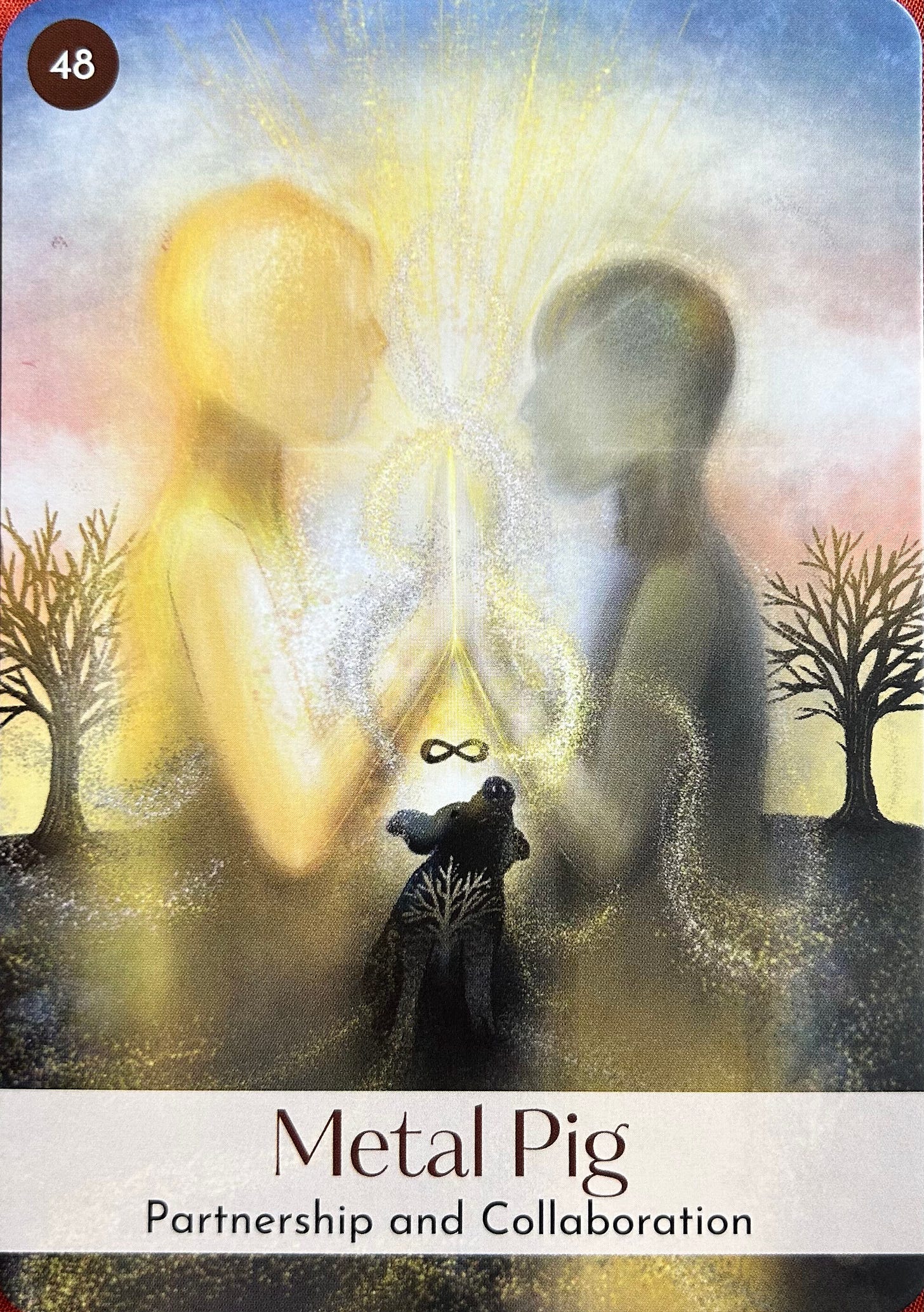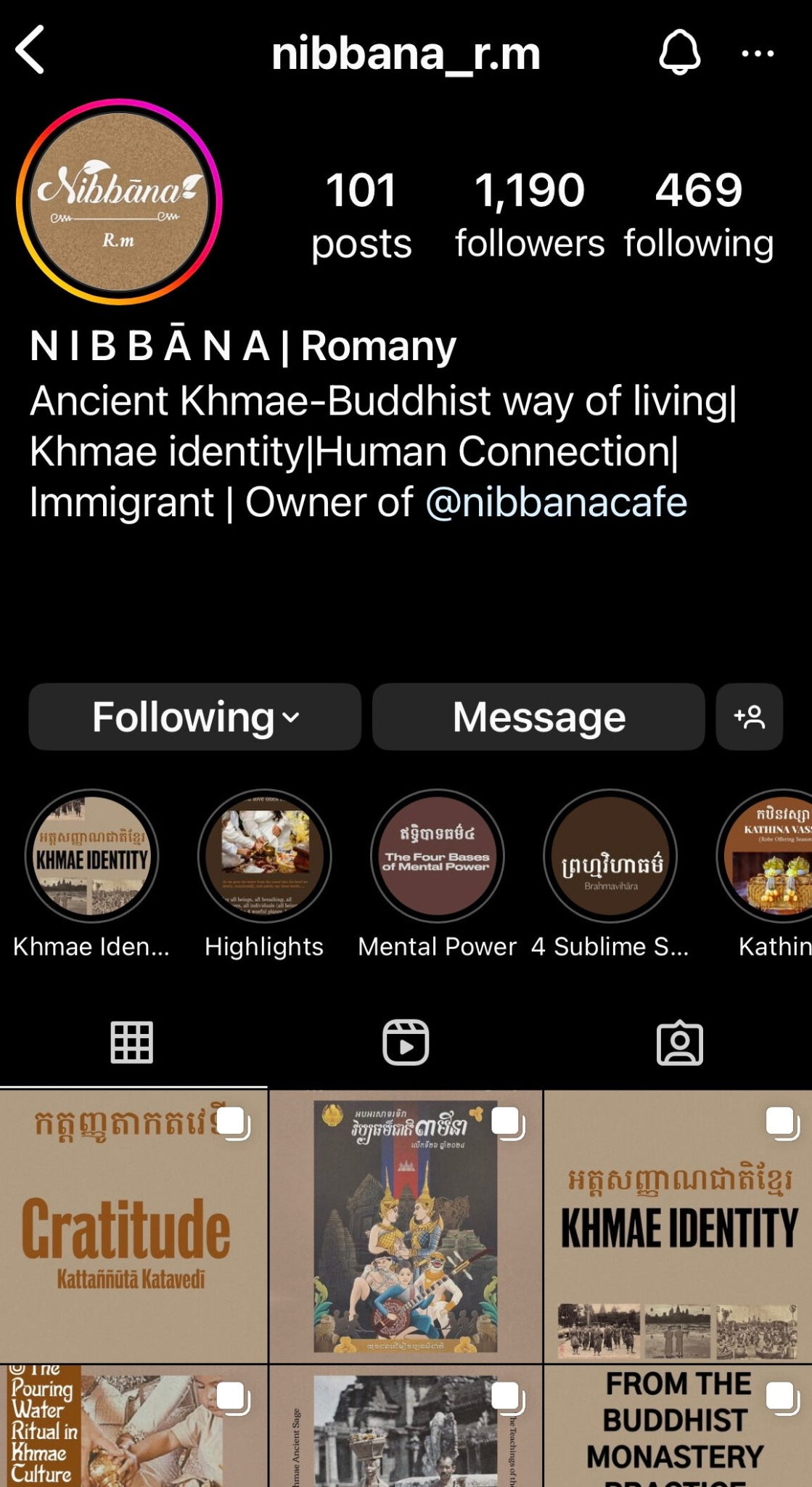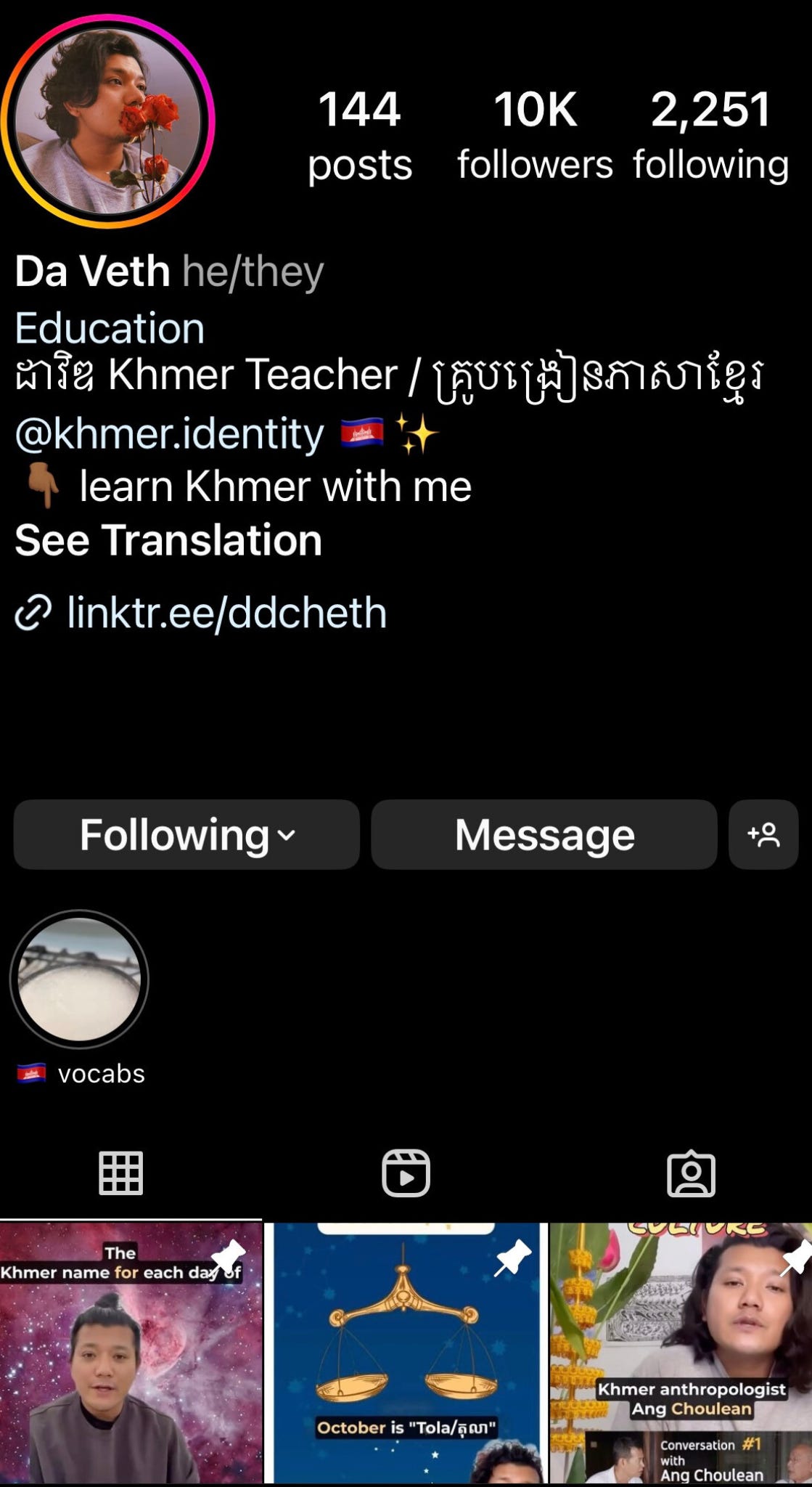Collective Energy Card Pull
From the The Chinese Five Elements Oracle Deck by Vicki Iskandar
The Metal Pig pillar, with Yin Metal over the Pig's Yin Water, reveals how our partners in love or business are a reflection of who we are.
This card appears to help us make sense of changes in our partnerships, whether personal or professional. We attract partners who match our frequencies, which change as evolve. Relationships feel fated when the frequencies align. Separations occur when our vibrations are no longer in harmony, and there comes a time for each partner to move on to the next step in their own unique path. When this happens, let them go and wish them well as the partnership has served its purpose.
Check in with the heart whenever you're considering partnering with someone for a project. Placing your fears aside, does the heart scream yes with excitement? Then go for it, and enjoy the collaboration and energy exchange! There's no mere coincidence here. Pay attention to synchronicity and serendipity. The universe is always ever supportive in helping us meet the right people and the right group at the right time in the right place.
Trust in Divine flow and open your heart to receive its guidance.
Message from Heaven: Metal shows our most significant relationships as a reflection of our soul's journey. Consider how the lessons learned in your relationships have contributed to your growth.
Message from Earth: The Pig signifies ever changing circumstances. Surrender to the flow and embrace the process.
This particular card and message resonated with me because I often share with my clients that I don’t believe in the trope of “everything happens for a reason” because shit doesn’t always happen to you or the world for a greater purpose ESPECIALLY distressing and negative events. That statement feels gaslighting as hell.
However, I do believe that events and things that are aligned for you will happen and isn’t always coincidence.
Music is Medicine
In the spirit and celebration of Cambodian New Year April 13-April 16 and VANNDA’s newest song drop, I HAD to showcase this song. It has been on REPEAT and I am literally counting down the days to see him live on June 15th at the annual Southeast Asian Music Festival, SABAIDEE FEST at Chino, California this year.
Cambodian New Year or "Chaul Chnam Thmey" in Khmae
This time of year is one of the most significant traditional holidays in Cambodia. It marks the beginning of the traditional lunar calendar year and is celebrated with great enthusiasm and joy. The history of Cambodian New Year is deeply rooted in both Buddhist and Hindu traditions, reflecting the cultural diversity and influences in Cambodia.
Cambodian New Year has its origins in ancient agrarian societies where the cycle of planting and harvesting played a crucial role. It is believed that the festival has both Buddhist and Hindu origins. In Hindu tradition, the New Year coincides with the end of the harvest season and the beginning of the solar year, while in Buddhism, it marks the end of the dry season and the beginning of the rainy season. It is celebrated over three days in mid-April, usually from the 13th to the 15th of the month although this year it is April 13-16.
Each day of the celebration has its own significance and customs. The first day, known as Maha Songkran, is dedicated to cleansing rituals and paying respect to ancestors. The second day, Virak Wanabat, is a day of charity and giving, where people offer gifts to the less fortunate and participate in community service. The third day, Tngai Loeung Sak, is a time for family gatherings and festive activities. The New Year festival is also a time for religious observances, including visits to temples for prayers and offerings to monks as Buddhism has been a dominant cultural and religious force in Cambodia for centuries.
The festivities are celebrated with various cultural festivities, including traditional dances, music performances, and street parades. One of the most popular customs is the "Angkor Sankranta" festival held in Siem Reap, which showcases traditional Khmer arts, crafts, and cuisine. Water plays a significant role in the New Year celebrations, with people engaging in water fights and splashing water on each other as a symbol of cleansing and renewal.
Cambodia has a tumultuous history marked by periods of prosperity and turmoil. The celebration of Cambodian New Year has endured through these challenging times, serving as a symbol of resilience and cultural pride. Despite the devastation caused by events such as the Khmer Rouge regime in the 1970s, the tradition of celebrating New Year has persisted, albeit with adaptations and revitalizations in the post-conflict era.
It is so beautiful to witness these New Year traditions continued in the Khmae Diaspora all over the world.
Some instagram accounts of Khmae creatives and inspirations I love and recommend you to check out (in no particular order)!
In my humble opinion, they have ignited a beautiful spark in the Cambodian diaspora community that is so evident and palpable. A spark that is encouraging us to bloom out of mud like a lotus and thrive in collective care and generational joy and healing through art, music, photography, humor, books, storytelling, and community. I am forever grateful to see the smiles and joy throughout the lineages.
Rationalizing is harming not helping.
Have you ever found yourself in a situation where you're facing a tough decision or dealing with a challenging emotion, and instead of fully experiencing it, you try to rationalize it away? Maybe you tell yourself, "It's not that big of a deal," or "I should just toughen up and get over it." Well, you're not alone. Many of us have been taught to intellectualize our emotions—to analyze them from a distance rather than actually feeling them.
Think about it this way: when we intellectualize our emotions, we're essentially trying to outsmart ourselves. We think that if we can just come up with the right explanation or justification, we'll be able to avoid the discomfort that comes with feeling vulnerable or uncertain. But the truth is, emotions don't always follow a logical pattern. They're messy and complex, and trying to fit them into neat little boxes only leads to frustration and confusion.
Let's start by defining our terms. Rationalizing is the process of attempting to explain or justify one's behavior or beliefs with logical, plausible reasons, often in an attempt to avoid facing uncomfortable truths or emotions. On the other hand, intellectualizing involves approaching emotional or personal issues from a detached, analytical perspective, often using intellectual reasoning to distance oneself from the emotional reality of a situation.
One of the key reasons why we rationalize or intellectualize is to regain a sense of control over situations that might otherwise feel overwhelming or uncertain. However, this illusion of control can be deceptive, leading us to overlook the deeper emotional truths that lie beneath the surface. When we constantly intellectualize our emotions, we're also missing out on valuable insights about ourselves and our experiences. Emotions serve as important signals that can tell us a lot about what's going on in our lives. By ignoring or dismissing them, we're cutting ourselves off from valuable information that could help us make better decisions and live more fulfilling lives.
Check out my latest episode of Hold Up, Wait A Minute Podcast for the audio version of this topic.
Ways to stay connected:
Check out the Reset & Resilient Wellness website for new monthly editorals.
Upgrade to become a Substack monthly paid subscriber and receive monthly personalized, recorded Oracle or Tarot Card reading from me!
Subscribe to the monthly newsletter for Radical Self-Care, Somatic, and Spiritual Health Inspiration on the RRW website.
Follow and listen to my monthly podcast series, Hold Up, Wait A Minute Podcast! A space where we can explore nuanced topics within pop psychology & social media; unpacking various topics relating to mental health, relationships, collectivism, abolition, and community care.
Follow me on Instagram @maobeckett_resetresilient :)













